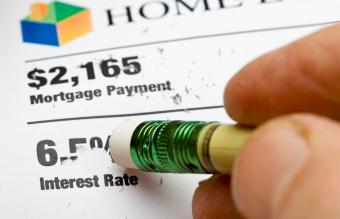

HUD foreclosures are foreclosures managed by the U. S. Department of Housing and Urban Development.
What Is HUD?
The purpose of HUD is to increase home ownership. Its mission is to create affordable housing opportunities. They enforce fair housing laws and focus on providing opportunities for economically disadvantaged. Unfortunately, they also must manage the repossession of the homes in which the owners have defaulted on their payments.
HUD and the FHA
FHA is an acronym for Federal Housing Administration. The FHA is a part of HUD. The FHA convinces mortgage companies to make loans by offering a guarantee to lenders that mortgage loan balance will be repaid. In essence, the FHA insures the loan.
These services are not entirely dependent on tax revenues. The FHA collects a 1.5 percent funding fee at the time of purchase.
If a home loan guaranteed by the FHA goes into foreclosure, ownership of the property reverts to the Department of Housing and Urban Development. It is then considered a HUD foreclosure. As the new property owner, HUD offers it for sale to cover the FHA's losses.
HUD Foreclosure Help
HUD has a few proactive programs to aid homeowners in avoiding HUD foreclosures. These programs are designed to help the borrower avoid completion of the foreclosure process.
All 50 states have HUD-approved counseling agencies to provide advice and assistance. They can offer information on government plans and explain which local organizations are prepared to offer aid. In some agencies, counselors are also prepared to assist the homeowner if they are having difficulty communicating with their lender.
Homeowners should try to maintain a good relationship with their mortgage provider during this difficult time. The mortgage lender makes the application to HUD for the benefits offered in the following two plans.
Partial Claim
If the homeowner can resume monthly payments on their mortgage, the partial claim will allow them to obtain enough money to bring their loan up-to-date. This will stop the HUD foreclosure process.
The lender files for a partial claim through HUD. If approved, this government agency will pay enough on the loan to bring the account up to date. This is not a gift. The borrower signs a promissory note and must repay the amount. The Department of Housing and Urban Development places a lien on the property until the promissory note is paid in full.
To qualify:
- Loan must be 4-12 months past due.
- Borrower must be able to begin making full mortgage payments immediately.
Pre-Foreclosure Sales
If the homeowner can sell the house before the HUD foreclosure process is completed, it saves the government the time and expense of liquidating the property. A pre-foreclosure sale can help the homeowner buy time and avoid foreclosure, which can help salvage his credit rating. It is especially helpful for those who live in areas where housing values have fallen. Criteria include:
- Account must be at least 2 months past due
- House must be sold within 3-5 months
- New appraisal must indicate a value within HUD guidelines
In some situations, the fair market value of the home is not enough to cover the loan's balance. In a conventional mortgage foreclosure, the borrower is responsible for any balance remaining after the home is sold. With a HUD foreclosure, the agency covers the lender's balance if the situation meets their criteria.
Purchasing HUD Foreclosure Property
These foreclosure properties are offered online through management companies under contract to HUD. Agents for potential buyers submit sealed bids. These are then accepted or rejected by HUD.
Initially HUD designates a Priority Period. During this time, only those who plan to use the home as a personal residence can bid.
If the HUD foreclosure property is not sold during the priority period, the bidding process is thrown open to any potential purchaser. Interested buyers may submit sealed bids that contain a financial offer and contract to purchase. At the end of the Offer Period, the accepted bid is announced.
Real estate brokers that offer, or broker, these foreclosure homes must be registered with HUD. They operate on behalf of the buyer and submit the offer and contract. Part of the contract is the agent's commission. HUD pays the broker up to six percent of the purchase price as a commission.
Selecting HUD Foreclosure Property
When a HUD property is offered for sale, it is classified in one of three ways:
- IN
-
- Home most likely will qualify for FHA backing.
- UN
-
- Not likely to qualify for FHA insurance. Property needs more than $5,000 in repairs.
- IE
- Crucial repairs are needed. The required amount need to pay for the crucial repairs is placed in escrow at closing
HUD foreclosure homes are sold 'as is'. Even those designated "IE" may have other repairs and maintenance needed to be habitable. Buyers should have a professional home inspection prior to making a purchase offer.
Buyers are responsible for obtaining their own financing. In some cases, they may qualify to have the home insured by the FHA.
Special Programs
If the foreclosed home is not purchased within six months, HUD will sell it to qualified non-profit organizations or other government agencies.
Under the "Good Neighbor Initiative" program, some properties are available to those who serve the community in other ways. Those who may be eligible include:
- Police Officers
- Firefighters
- Emergency Medical Technicians
- Teachers
- Non-profit Organizations
- Local Government Agencies
Summary
For those who own a property undergoing a HUD foreclosure, there are options to assist them. Potential buyers can benefit by purchasing the property as an investment or family home at a below market cost.
Related External Links
Related Mortgage Links
- FHA Home Loan
- Types of Mortgages
- Mortgage Interest
- Investment Property Financing
- FHA Mortgages
- FHA Mortgages and Home Inspection Requirements
Written by Pamela Lach







